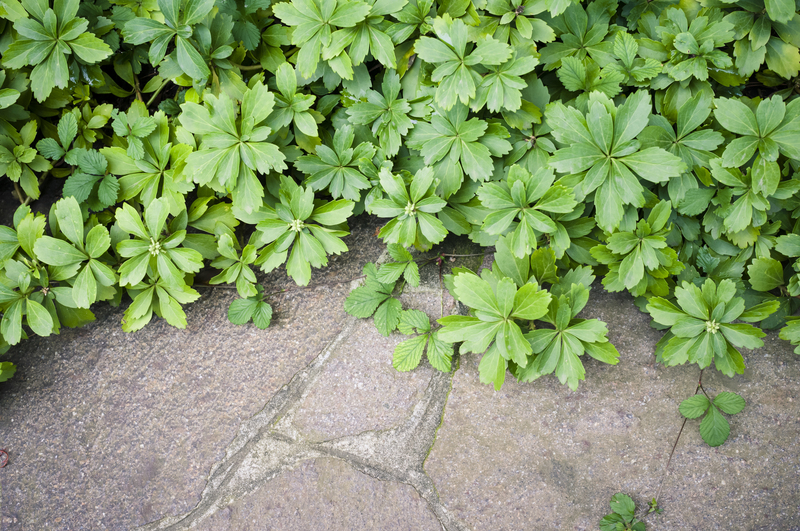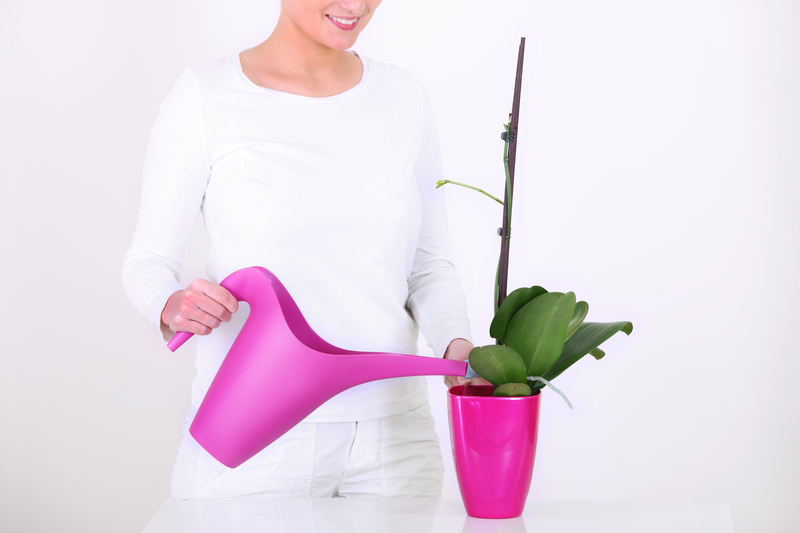Say Goodbye to Weeds with These 3 Tips
Posted on 14/08/2025
Say Goodbye to Weeds with These 3 Tips: Your Ultimate Guide to a Weed-Free Garden
If you're tired of battling pesky weeds and want a green, thriving landscape, you're in the right place! Discover the top three proven strategies for effective weed prevention and control. Bid farewell to invasive plants and keep your garden healthy all season long.
Why Effective Weed Control Matters
Weeds aren't just unsightly; they can harm your lawn and garden in several ways:
- Compete with your plants for nutrients, water, and sunlight
- Act as hosts for pests and diseases
- Reduce the visual appeal of your landscaping
This is why liberating your outdoor space from weeds is essential for plant health and your own enjoyment. Let's dive into the three game-changing tips to help you say goodbye to weeds for good!

Tip 1: Mulch--Your Ultimate Weed Barrier
One of the most effective and eco-friendly weed control methods is mulching. This simple practice helps to block sunlight, preventing weed seeds from germinating. It also keeps your soil moist and improves its structure over time!
How Mulching Stops Weeds
- Blocks weeds' access to light--no sunlight means no growth!
- Prevents weed seeds from spreading by wind or animals
- Helps conserve soil moisture for your desired plants
Types of Mulch for Weed Suppression
There are two main types of mulch:
- Organic Mulch: Bark, straw, compost, grass clippings, shredded leaves
- Inorganic Mulch: Landscape fabric, gravel, rubber chips, black plastic
For the best weed-killing results, apply a thick, even layer--about 2 to 3 inches deep. Remember to keep mulch a few inches away from plant stems to prevent rot.
Pro Tip: Landscape fabric beneath any mulch can add an extra layer of protection against even the most stubborn garden weeds.
Tip 2: Proactive Weed Removal--Act Fast and Smart
The key to successful weed management is consistency. Remove weeds as soon as you spot them to prevent them from seeding and spreading. The longer you wait, the harder it becomes!
The Best Techniques for Removing Weeds
- Hand-pulling: Most effective when weeds are young and after rain when soil is moist. Grip the weed at the base and pull gently but firmly to remove roots.
- Hoeing: Use a sharp hoe to cut weeds off at the soil line. This is ideal for larger garden beds.
- Digging: For deep-rooted weeds like dandelions, use a narrow trowel or weeding fork to dig out the entire taproot.
When is the Best Time to Weed?
- After Rain: Soil is soft, and roots come out easier.
- Early Spring: Before weeds set seed and spread throughout your garden.
- Regularly: Consistency is crucial for weed-free lawns and beds.
Disposing of removed weeds properly is important--don't compost weeds with seeds or roots unless your pile gets hot enough (130?F+) to kill them.
Tip 3: Prevent Future Weeds with Smart Planting & Lawn Care
Prevention is always better than cure. Creating conditions in your garden that discourage weed growth is one of the most efficient long-term solutions.
Fill in Gaps Quickly
Weeds love open spaces. The more bare soil they see in your lawn or beds, the more likely they'll move in. Here's how to limit their opportunities:
- Dense Planting: Use appropriate ground covers, shrubs, or perennial flowers to shade the soil and crowd out unwanted plants.
- Overseed Lawns: For lush, thick turf, overseed bare patches in early fall or spring. Weed seeds can't sprout if there's no space to access sunlight.
Mow and Water Properly
- Mow high: Taller grass shades the soil surface, deterring weed germination. Set your mower blades to 3 inches or above for most lawns.
- Water deeply, less often: Deep watering encourages healthy root systems for good plants, while suppressing shallow-rooted weeds.
Choose Weed-Free Seeds and Plants
- Buy certified weed-free seeds and soil from reputable sources.
- Inspect nursery plants for hidden weeds in their pots before purchasing.
Use Pre-Emergent Herbicides--Sparingly and Wisely
For larger spaces or lawns prone to stubborn weeds, a pre-emergent herbicide can stop weeds before they start. Apply pre-emergents in early spring before weeds germinate--but read labels carefully, as these products can also hinder the growth of seeds you want to plant!
Bonus Tips for Saying Goodbye to Weeds
- Edge your beds: Use physical barriers like metal, plastic, or stone to stop invasive grasses and weeds from creeping into your planting areas.
- Solarize problem areas: Cover patchy, weedy zones with clear plastic for 4-6 weeks in summer to literally "cook" weed seeds and roots.
- Spot treat: If you must use a chemical weed killer, use a foam brush or targeted sprayer to avoid harming desirable plants. Remember, organic weed control options are always preferable where possible.
- Pull before they seed: Most garden weeds spread by seed. Act fast and you'll save effort in the long run.
Common Weeds and How to Tackle Them
Annual Weeds
- Examples: Crabgrass, chickweed, purslane, annual bluegrass
- Control Methods: Shallow hoeing, pre-emergent herbicides, and mulching are especially effective against these rapid growers.
Perennial Weeds
- Examples: Dandelion, creeping Charlie, bindweed, Bermuda grass
- Control Methods: Remove the whole root system by hand or dig them out, and maintain dense, healthy turf or ground cover to prevent regrowth.
Resilient Weeds
- Examples: Nutsedge, thistle, wild violets, poison ivy
- Control Methods: Persistence is key. Try a combination of digging, spot treatments, and vigilant monitoring.

Frequently Asked Questions about Effective Weed Control
- Q: How often should I weed my garden?
A: Check for weeds weekly and remove any new arrivals right away to prevent seed formation. - Q: Will vinegar or boiling water kill weeds?
A: Yes, both can kill young weeds, but may not be effective on deep-rooted or perennial weeds. Use with caution to avoid harming desirable plants. - Q: Can I permanently get rid of weeds?
A: With ongoing maintenance and use of the right prevention strategies, weed problems can be minimized almost entirely--but total, permanent elimination is rare due to seed dispersal by wind and animals. - Q: Are there safe, organic ways to say goodbye to weeds?
A: Absolutely! Mulching, hand weeding, and solarization are 100% organic weed control solutions.
Conclusion: Enjoy a Weed-Free Yard with Consistency and These Proven Tips!
Don't let weeds take over your garden or lawn. By focusing on proactive mulching, timely weeding, and smart preventive care, you'll dramatically reduce weed growth and enjoy a landscape you're proud of. Mix and match these strategies for optimal success and watch as weeds become a thing of the past.
Ready to say goodbye to weeds for good? Start with these three essential tips, remain vigilant, and reclaim your outdoor space today. Your dream of a lush, healthy, weed-free lawn or garden is closer than you think!
Stay tuned for more in-depth guides and expert advice on every aspect of gardening and lawn care. If you have any weed-busting secrets or questions, share them with us in the comments below!
```
